 W
WIn Spain, an autonomous community is a first-level political and administrative division, created in accordance with the Spanish constitution of 1978, with the aim of guaranteeing limited autonomy of the nationalities and regions that make up Spain.
 W
WAndalusia is the southern autonomous community in Peninsular Spain. It is the most populous, and the second largest autonomous community in the country. The Andalusian autonomous community is officially recognised as a "historical nationality". The territory is divided into eight provinces: Almería, Cádiz, Córdoba, Granada, Huelva, Jaén, Málaga and Seville. Its capital is the city of Seville. The seat of the High Court of Justice of Andalusia is located in the city of Granada.
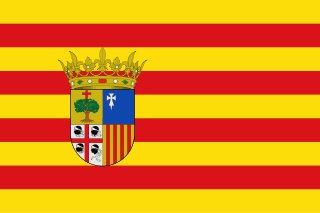 W
WAragon is an autonomous community in Spain, coextensive with the medieval Kingdom of Aragon. Located in northeastern Spain, the Aragonese autonomous community comprises three provinces : Huesca, Zaragoza, and Teruel. Its capital is Zaragoza. The current Statute of Autonomy declares Aragon a historic nationality of Spain.
 W
WAsturias, officially the Principality of Asturias, is an autonomous community in north-west Spain. It is coextensive with the province of Asturias and contains some of the territory that was part of the larger Kingdom of Asturias in the Middle Ages. Divided into eight comarcas (counties), the autonomous community of Asturias is bordered by Cantabria to the east, by León to the south, by Lugo (Galicia) to the west, and by the Bay of Biscay to the north.
 W
WThe Balearic Islands are an archipelago of islands in Spain in the western Mediterranean Sea, near the eastern coast of the Iberian Peninsula.
 W
WThe Basque Country, officially the Basque Autonomous Community is an autonomous community in northern Spain. It includes the Basque provinces of Álava, Biscay, and Gipuzkoa.
 W
WThe Canary Islands, also known informally as the Canaries, are a Spanish archipelago and the southernmost autonomous community of Spain located in the Atlantic Ocean, in a region known as Macaronesia, 100 kilometres west of Morocco at the closest point.
 W
WCantabria is an autonomous community in northern Spain with Santander as its capital city. It is recognized as a historic community and is bordered on the east by the Basque Autonomous Community, on the south by Castile and León, on the west by the Principality of Asturias, and on the north by the Cantabrian Sea.
 W
WCastile and León is an autonomous community in north-western Spain.
 W
WCastilla–La Mancha, or Castile La Mancha, is an autonomous community of Spain. Comprising the provinces of Albacete, Ciudad Real, Cuenca, Guadalajara and Toledo, it was created in 1982. The government headquarters are in Toledo. Albacete is the most populous municipality.
 W
WCatalonia is an autonomous community on the northeastern corner of Spain, designated as a nationality by its Statute of Autonomy.
 W
WExtremadura is an autonomous community of Spain. Its capital city is Mérida. Located in the central-western part of the Iberian Peninsula, it is made up of the two largest provinces of Spain: Cáceres and Badajoz. Extremadura is bordered by Portugal to the west and by the autonomous communities of Castile and León (north), Castilla–La Mancha (east) and Andalusia (south). Its official language is Spanish.
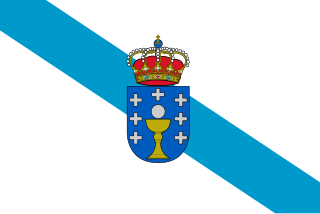 W
WGalicia is an autonomous community of Spain and historic nationality under Spanish law. Located in the northwest Iberian Peninsula, it includes the provinces of A Coruña, Lugo, Ourense and Pontevedra.
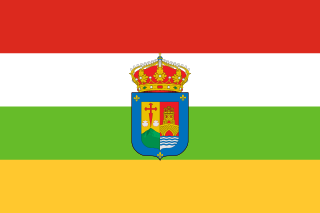 W
WLa Rioja is an autonomous community and province in Spain, located in the north of the Iberian Peninsula. Its capital is Logroño, other cities and towns in the province include Calahorra, Arnedo, Alfaro, Haro, Santo Domingo de la Calzada, and Nájera. It has an estimated population of 315,675 inhabitants, making it the least populated region of Spain.
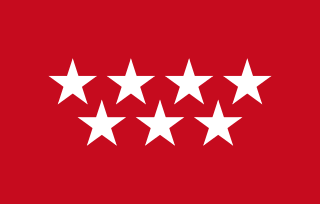 W
WThe Community of Madrid is one of the seventeen autonomous communities of Spain. It is located in the centre of the Iberian Peninsula, and of the Central Plateau . Its capital is the city of Madrid, which is also the capital of the country. The Community of Madrid is bounded to the south and east by Castilla–La Mancha and to the north and west by Castile and León. It was formally created in 1983, based on the limits of the province of Madrid, which was until then conventionally included in the historical region of New Castile.
 W
WThe Region of Murcia, is an autonomous community of Spain located in the southeast of the Iberian Peninsula, on the Mediterranean coast.
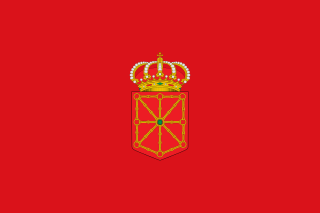 W
WNavarre, officially the Chartered Community of Navarre, is an autonomous community and province in northern Spain, bordering the Basque Autonomous Community, La Rioja, and Aragon in Spain and Nouvelle-Aquitaine in France. The capital city is Pamplona. The best-known event in Navarre is the San Fermín festival in July held in Pamplona.
 W
WThe Valencian Community is an autonomous community of Spain. It is the fourth most populous autonomous community after Andalusia, Catalonia and Madrid with more than five million inhabitants. Its homonymous capital Valencia is the third largest city and metropolitan area in Spain. It is located along the Mediterranean coast on the east side of the Iberian peninsula. It borders with Catalonia to the north, Aragon and Castilla–La Mancha to the west, and Murcia to the south. The Valencian Community consists of three provinces which are Castellón, Valencia and Alicante.